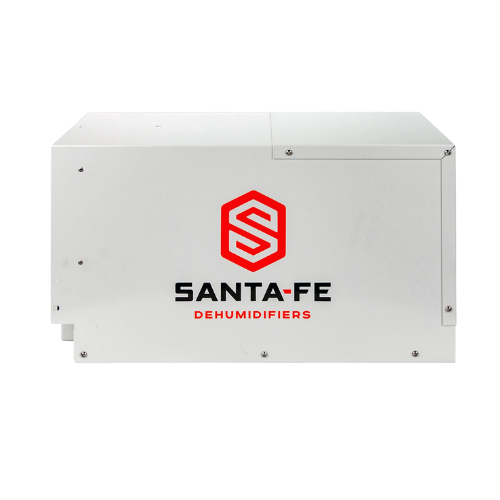What is a dehumidifier used for?
3 Key Takeaways:
🚀 Dehumidifiers help to remove moisture that is accumulating in the air in the environment, thereby elevating the indoor air quality.
🚀 Dehumidifiers can improve air quality by dealing with poor air circulation, allergy triggers like dust mites, musty smell, increased energy costs.
🚀 Dehumidifiers can regulate relative humidity levels and prevent water stains that come from dampness and mold issues, reducing allergy symptoms like difficulty breathing, stuffy nose, etc.
Get to know the benefits of using a dehumidifier.
Investing in the right dehumidifier for living space (or office space), or any room for that matter is crucial. Although an air conditioner helps to create the ideal environment that is cool and comfortable, it can do very little to maintain the humidity level and remove excess moisture from the air.
The benefits of a dehumidifier are many; it helps to remove moisture that is accumulating in the air in the environment, thereby elevating the indoor air quality. With moisture buildup in the humid environment, the excess moisture creates a lot of havoc on the home.
Humid climate and humid air can be taken care of only with a good dehumidifier. Relative humidity can be maintained with a dehumidifier which will give you dry air by extracting the moisture from humid air. When poor air circulation, allergy triggers like dust mites, musty smell, increased energy costs are dealt with by the way a dehumidifier works, you are left with a healthier home.
Let us look into detail how dehumidifiers deal with humidity and improve air quality and the advantages of their performance.
How does a dehumidifier work?
An air conditioner and home dehumidifier work in a similar fashion. They both work with coolants that expand and compress, thereby acting upon the air in the room.
Modern dehumidifiers are excellent devices that can turn any humid climate better. The relative humidity level that is high in a home (even if it is laundry rooms), is a sign that you need a dehumidifier to build a healthier environment.
High humidity levels occur from excess moisture accumulation. This excessive moisture in humid environments makes breathing difficult. It puts your family’s health in jeopardy. Dehumidifiers are designed to draw in the damp humid air, remove moisture from it, and bring down the moisture levels in humid conditions. This ability of dehumidifiers to work even with high and more moisture content is not possible by air conditioners and air purifiers.
The benefits of a dehumidifier can be witnessed in dry climates and colder climates alike. Areas with poor ventilation systems, poor air circulation, etc., are unhealthy and lead to health problems. Any living space with limited ventilation and high humidity levels will benefit from how dehumidifiers work.
Common allergy triggers like mildew spores, mold growth, dust mites, can also be removed by using a dehumidifier. Other benefits of a dehumidifier apart from regulating relative humidity levels include; improving air quality, preventing water stains that come from dampness and mold issues, reducing allergy symptoms like difficulty breathing, stuffy nose, etc.
Dehumidifiers are trusted appliances that can seamlessly absorb excessive moisture from humid environments of any size and elevate the indoor air quality by removing even something as small as dust mites. There are many dehumidifiers available in the market that allow you to select the level of relative humidity to be maintained in the room to suit your comfort. Based on the area required to be covered and moisture removal necessary, you can choose how many pints your unit has to be.
7 Signs you may need a dehumidifier

If your home is battling increased humidity levels, there are many signs that will point out to you that it is time to deal with it. Getting the best home dehumidifier is the perfect choice to remove the excess moisture content from your space and handle the damp area effectively. There are many dehumidifiers available in the market to choose from.
Here are some common signs that can confirm that you need a dehumidifier.
Poor air quality
Improving air quality of any indoor space must be a priority. Excess moisture and humidity levels make the air heavy and damp. The diminished air quality adds to many problems.
Improving air quality in humid environments can be done with the help of a dehumidifier.
High humidity levels
Poor air circulation leads to an increase in the relative humidity level. You can have a humidistat confirm the rise in humidity in any room. One of the main functions and benefits of a dehumidifier is to take in damp air and give out dry air, in the right proportion.
Drier air leaves little room for trouble from pests, mold, and other issues that arise from high humidity. If your room’s humidity level is shooting up, it is time to get a dehumidifier.
Condensation
If you notice frequent condensation on your windows and doors, it means your home requires a dehumidifier. There are many dehumidifiers that especially fight humidity in damp small areas. You can pick the one that suits your need best.
Mold
Mold spores and mold growth are prominent signs that your home is battling high moisture levels. Mold growth can happen quickly in any damp area, hence having a home dehumidifier will reduce the chances of allowing mold to proliferate.
Mold and mildew odor
The odor from mold and mildew are the first signs most people notice even before spotting the actual mold growth. If your home has a musty smell, it might be time to get a dehumidifier.
Health problems
A healthier home is a happier home. Are you and your family members having constant allergies and respiratory health problems? Peer-reviewed studies suggest that homes with a dehumidifier unit had members that had easier breathing and fewer bouts of allergies.
Damp
Damp floors and walls and another evident sign that your home’s humidity level is at a peak.
Benefits of owning a dehumidifier

Owning a dehumidifier comes with many advantages. Your home is going to witness several positive changes.
Let us take a look at the benefits of a dehumidifier and the different ways in which your family and home will find it useful. Peer-reviewed studies suggest that these are the top benefits of a dehumidifier.
Ideal environment
One of the first benefits of a dehumidifier is the comfortable environment it is capable of creating. An air conditioner is designed to give you a cold and comfortable space as well, but it has little to no effect in making the relative humidity levels that exist in the room.
Humid environments are filled with moisture that only dehumidifiers work best upon. Humidity levels can be maintained to suit your comfort. Moist air can be turned into drier air, free from dust mites and mold. Whether they are basement apartments or small laundry rooms; there is always a chance to improve air quality by using a dehumidifier.
Moisture levels
Another important addition to the benefits of a dehumidifier is its ability to control excess moisture. A humid climate with excessive moisture is harmful to health and to the infrastructure of the building. Dehumidifiers remove moisture from the air, convert it into water via condensation and thereby maintain the relative humidity level in the room.
High levels of moisture cause plentiful damage like mold growth, mildew, wood rotting, moldy odor, wallpaper peeling, and more. A space that is sealed completely for energy efficiency might end up becoming a storehouse for excess moisture. A dehumidifier works effectively to extract this moisture that is trapped even in unreachable areas.
Allergies
Common allergy triggers thrive in areas filled with excess moisture content. This condition is favorable for allergens to proliferate and spread. Mold, mildew, dust mites, etc., decrease the indoor air quality and aggravate underlying respiratory health problems, especially difficulty in breathing.
Many homeowners find that having a dehumidifier works to their advantage by simply removing the allergens and keeping the home healthy and safe. Moist-free dry air will help you bid goodbye to a stuffy nose, irritated eye, and other allergy symptoms.
Pests
Mold spores or mildew spores are not the only allergens that harm one’s well-being; small pests like spiders and roaches also thrive in high humidity areas. The limited air circulation makes it a favorable climate for pests.
Having a dehumidifier will help to regulate the moisture levels and thereby making the area unfavorable for pests to thrive further.
Energy costs
Another surprising benefit of a dehumidifier is its energy efficiency. You will be able to cut down on energy costs by using a dehumidifier at home. Due to poor air circulation (or other reasons), the high relative humidity level in a room will require the air conditioner to first work on the high humidity to an extent and then start cooling the room.
Using a dehumidifier will enable the air conditioner to directly get to cooling the room while the dehumidifier works on the relative humidity level. This is how energy efficiency and energy costs find their place among the benefits of a dehumidifier. Almost all dehumidifiers now available have energy star certification which is a guarantee to reduce energy costs.
Dust mites
Dust mites thrive in excess moisture and humid conditions. Dry climates are equally helpful for dust mites to spread. Many dehumidifiers are built with the latest technology and air filters to trap dust mites effectively. Investing in a good dehumidifier will ensure that the dehumidifier works to get rid of dust mites completely.
You can be safe in an environment that will not disrupt your breathing and can handle other signs and causes of dust mites like damp walls and mold.
Odour that accompanies mold
Mold growth doesn’t just stop with its hazards but it also comes with a disturbing odor that accompany mold. Water stains and dampness in the bathrooms are the most common reasons for mold growth. To create a healthier environment and get rid of humidity thoroughly you will need a dehumidifier.
One of the major benefits of a dehumidifier is to prevent mold and accompanying mold issues. Investing in the right dehumidifier will help you to tackle mold issues even in areas with limited ventilation.
How to make the most out of your dehumidifier?
Placing the dehumidifier in the right location will make controlling humidity levels easier. In areas with little air circulation or dampness, or to simply focus on improving air quality, the unit can be placed at the center of the room or close to the problem area to get the maximum benefits of a dehumidifier.
How do you know if you need a humidifier or dehumidifier?
It is recommended to have a professional investigate the room’s humidity before you make the decision.
A home with a humidity level above 50% is suggested to have a dehumidifier.
Homes with a relative humidity level of under 30% are suggested to have a humidifier.
How often should you use a dehumidifier?
How long you should run your unit depends entirely on your home and its humidity content. It is recommended to run a dehumidifier for at least 12 hours per day to achieve the best results.
FAQ Section
1. Is it good to sleep with a dehumidifier?
It is absolutely safe to sleep with a dehumidifier running in your bedroom.
There are plentiful models nowadays that come with a silent operation that ensures you have peaceful undisturbed sleep.
2. Does a dehumidifier clean the air?
No. Dehumidifiers do not clean the air, but they improve its quality by removing allergens and microbes. They give you cleaner and safer air to breathe in by filtering out the allergens like mold, bacteria, fungal spores, dust, etc., in their air filter.
The air that is passed into the unit will come out drier and cleaner. However, they do not directly clean the air.
3. Are dehumidifiers safe?
Yes. These are 100% safe appliances. Ensure that you monitor the device (if it is not automatic), to keep a check that the humidity does not drop to dangerously low levels.
4. When to use a dehumidifier in the basement?
Basements are naturally filled with dampness. Keep a track of the humidity levels in basements to know when they require help from dehumidifiers.
5. What does a dehumidifier do for your health?
Getting rid of allergens and irritants from the air will keep you allergy-free. People with asthma and other respiratory disorders find having dehumidifiers beneficial for their respiration.
6. Do dehumidifiers help with dust?
Yes. The unit’s air filters are capable of trapping dust efficiently.
7. Where does the water come from in a dehumidifier?
The cold condenser coils in the unit convert excess moisture into vapor and water, which comes down as condensate and collects in the bucket.
8. Are dehumidifiers safe for dogs?
Dehumidifiers are safe for all pets. However, you just check that the device, like any other electrical appliance, is kept at a safe distance from pets and children.
Wrapping Up
Hope you found the article helpful to understand what a dehumidifier is used for and the benefits of a dehumidifier for your home. Let us know which dehumidifier model you use and how it works for your needs.

About The Author
Olivia — a self-confessed air quality addict — is a home climate enthusiast, fresh air advocate, and someone with deep personal experience and knowledge about mold extermination. Her work was mentioned in countless notable humidity publications. Previously she was an editor at Mold Remediation.